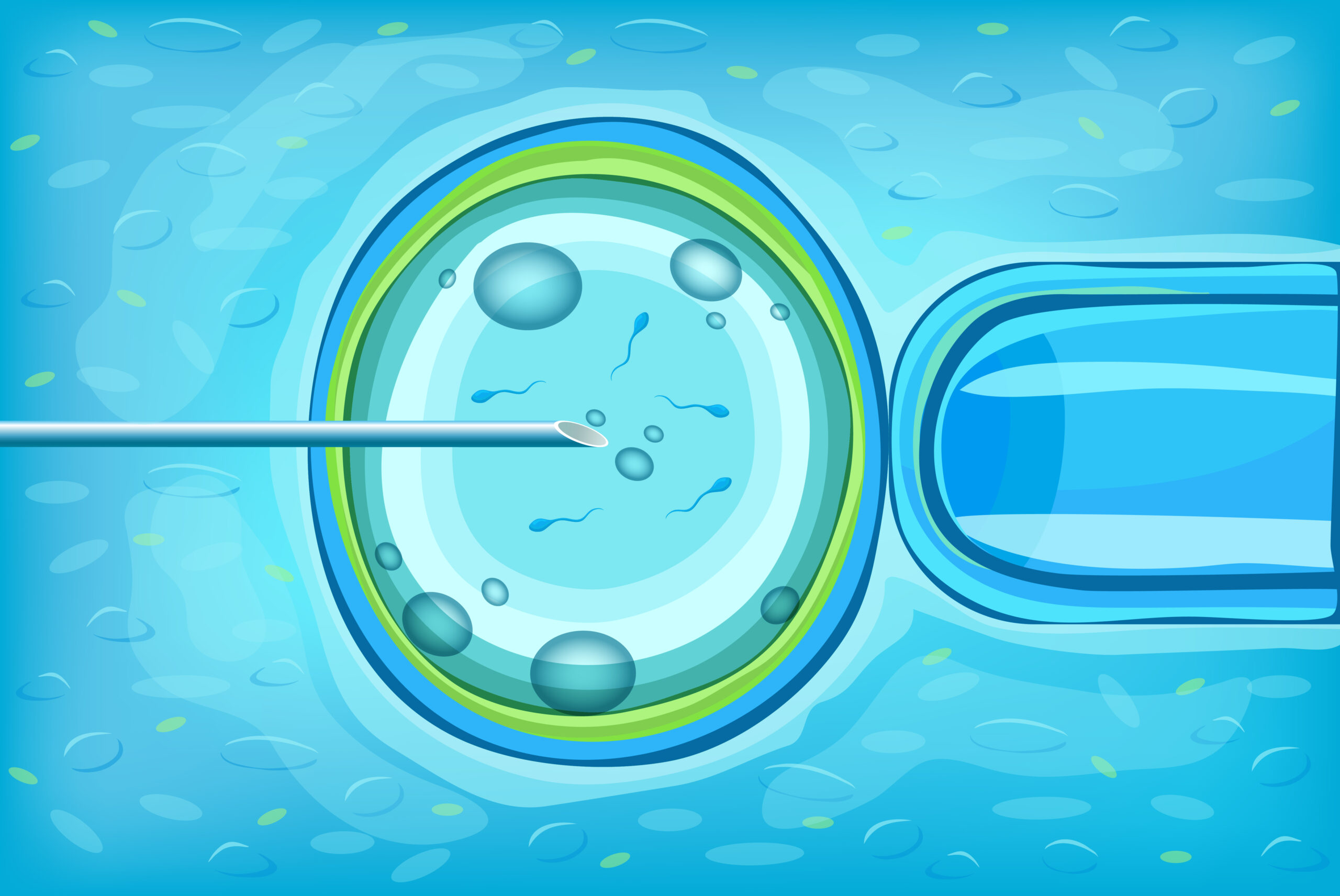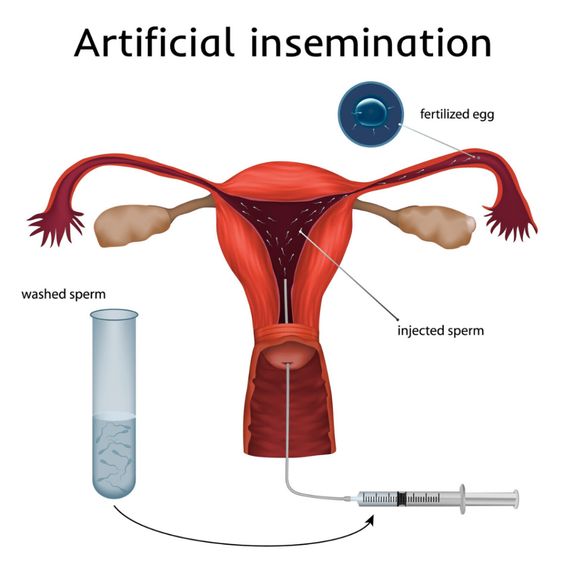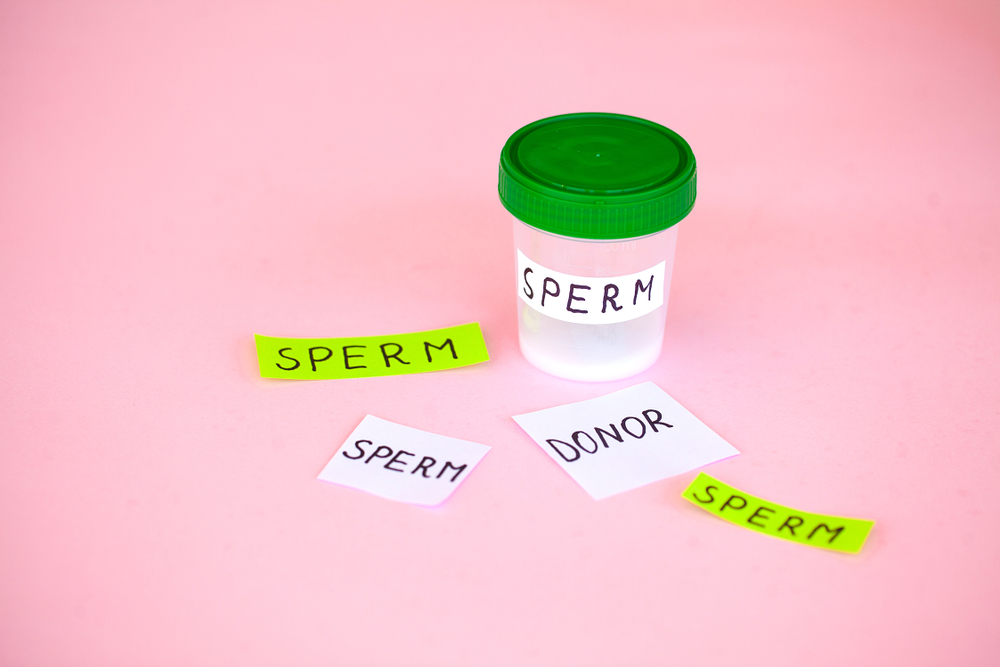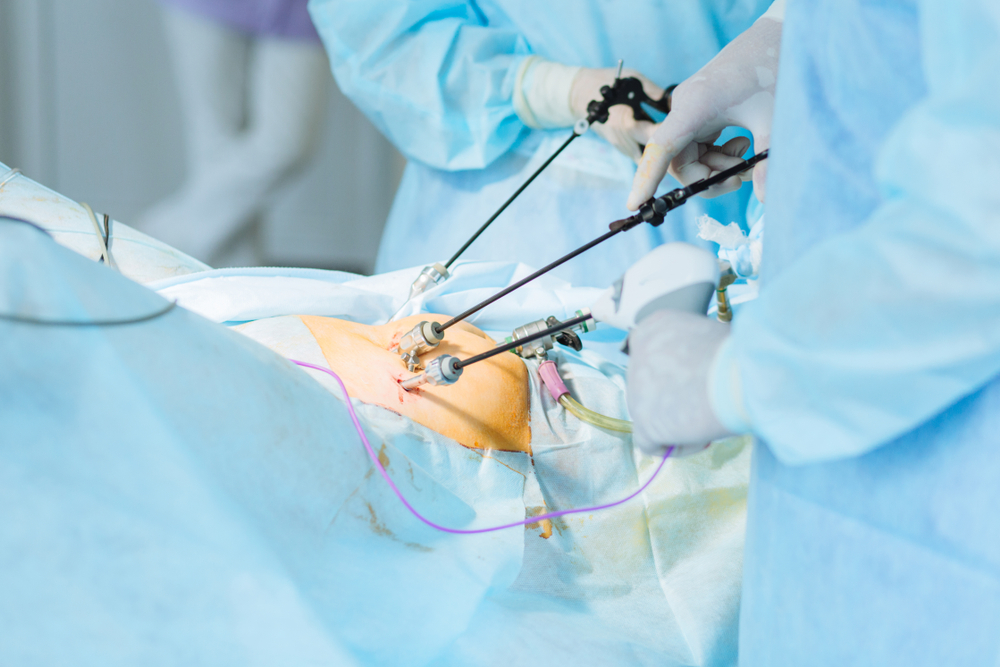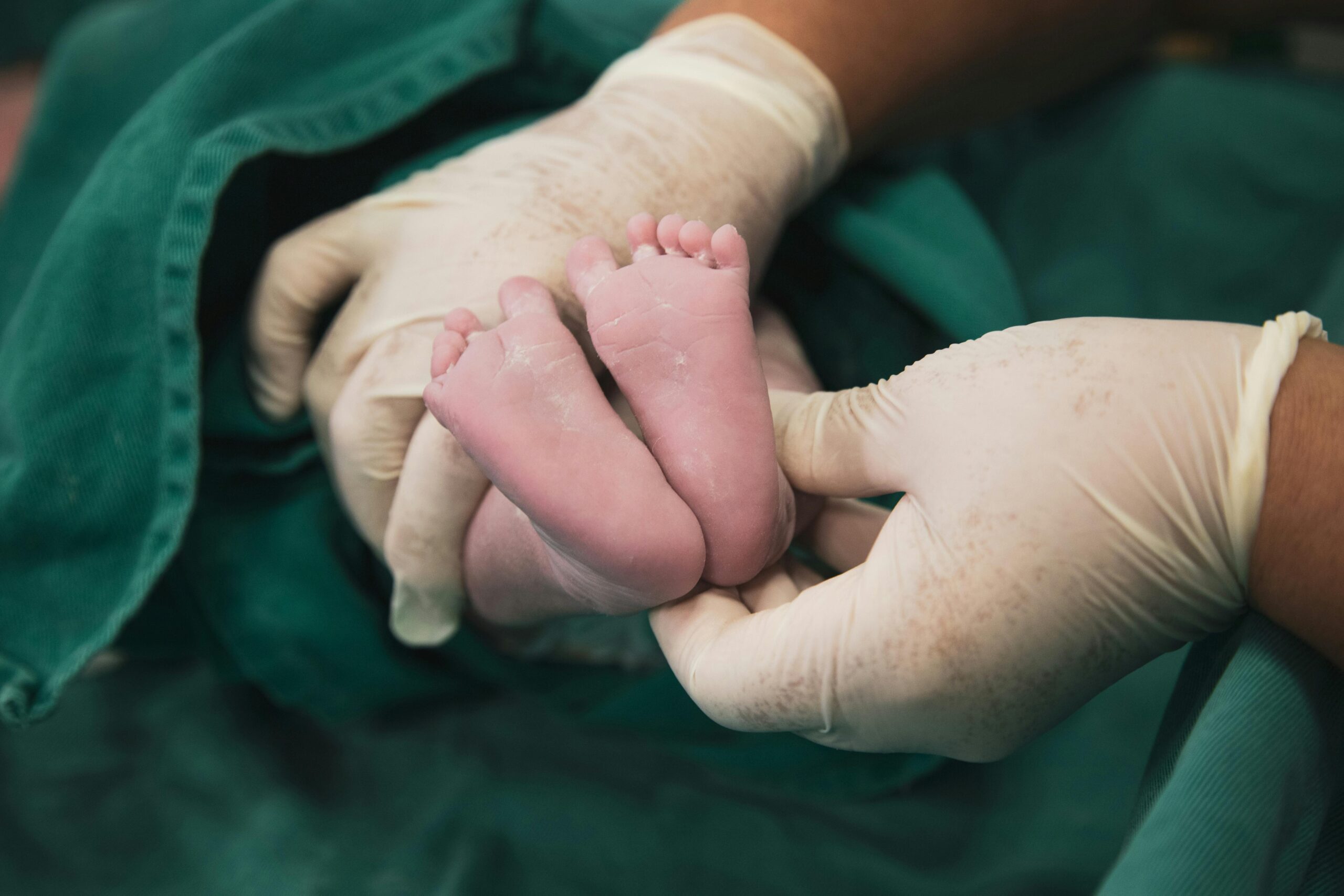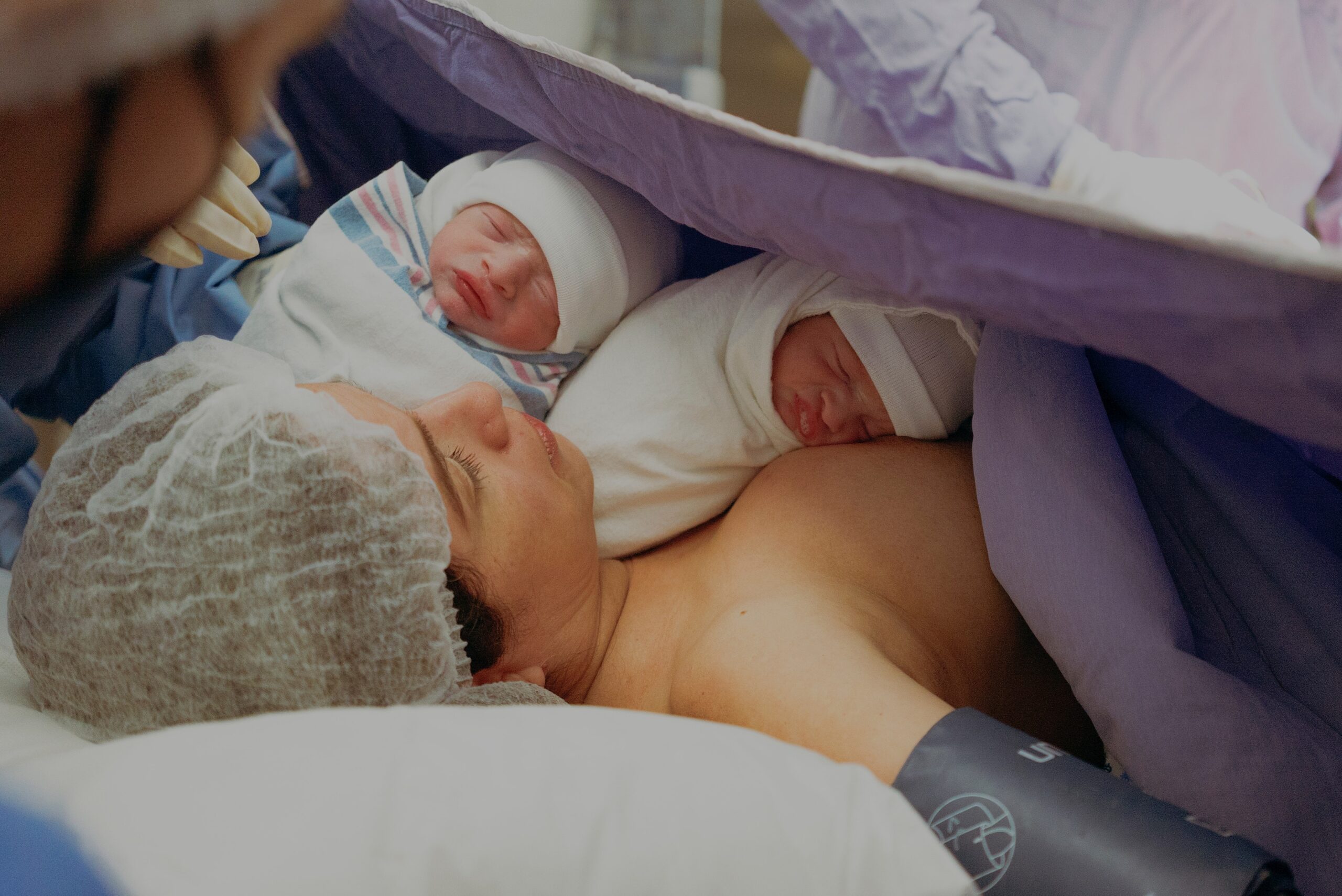






World-Class Technology
We are equipped with all the modern techniques and technologies for infertility treatments. Our top-class IVF lab has recently been upgraded as per the latest international recommendations.

Experienced Doctors & Staff
Dr. Lavleen Sodhi has been running the IVF centre since 2007 & it was the first in the region. With the best team of doctors & staff, we have successfully achieved results at par with the best institutes worldwide.

Patient-Friendly Environment
Dr. Sodhi's Healthcare Multispeciality Hospital and IVF Centre provides the perfect ambience and comfortable environment to all patients. Also, there is complete transparency in the treatment.
Empanelment
Our centre is empaneled with some of the best companies in the country.
- Icici Lombard
- Future Genera
- Med Save
- PARAMOUNT HEALTH CARE
- MEDI ASSIST INDIA
- UNIVERSAL SOMPO
- RELIANCE GENERAL INSURANCE
- BAJAJ ALLIANZ
- STAR HEALTH CARE
- MED HEALTH CLINIC
- MAX BUPA
- ADITYA BIRLA
- AKSHA TPA
- GHPL
- VIDAL HEALTH CARE
- TATA AIA
- FHPL
- KOTAK MAHINDRA
- VIDAL HEALTH CARE
- HDFC ERGO SAFEWAY
- BHARTI AXA
- VIPUL MED CORP
- PARK MEDICLAIM
- TTK
- GHPLTPA
- DHS
- MD INDIA
Why Choose Us
When it comes to your fertility care, you want the best. Dr. Sodhi's Healthcare Multispeciality Hospital and IVF Centre offers the best investigative procedures for infertility in men and women. We are equipped with world-class technology and state-of-the-art infrastructure which caters to infertility treatments like IUI, IVF, ICSI, Sperm donor, Egg Donor, Embryo Freezing, Blastocyst Culture and Transfer, Laparoscopy, Hysteroscopy, and more. In addition to your primary fertility physician, we have put together an integrated support team of experienced nurses, psychologists, and staff who work together to address your physical, emotional, and financial concerns. Choose Dr. Sodhi's Healthcare Multispeciality Hospital and IVF Centre to help build your family!

Dr. Sodhi’s Health Care Multispecialty Hospital & IVF Centre
Dr. Sodhi’s Health Care Multispecialty Hospital & IVF Centre has been running since 2007, employing the latest ‘State of the Art’ technologies for the treatment of infertile couples. The ultra-modern hospital is located in Mohali, a highly progressive township, adjoining Chandigarh.
Dr. LAVLEEN KAUR SODHI
DIRECTOR & Sr. CONSULTANT.
Obstetrician & Gynaecologist, Infertility specialist

Dr. Lavleen Kaur Sodhi is the Director, Sr. Consultant Obstetrician & Gynaecologist and Infertility specialist at Dr Sodhi’s Health Care Multispeciality Hospital & IVF Centre. She is also a visiting consultant at Fortis Hospital, Mohali & Cloud Nine Hospital, Chandigarh. Dr Lavleen Kaur has an illustrious academic record to back her present competencies. She completed her MD in 1995 from the prestigious P.G.I Chandigarh & her D.N.B.E from New Delhi, both in Obstetrics & Gynecology. During her M.B.B.S she also bagged the ‘Silver Medal’ in General Surgery in the final professional examination.
Happy Couples
Our Videos
Blog
 High-Risk Pregnancy Management – Complete Guide October 15, 2025
High-Risk Pregnancy Management – Complete Guide October 15, 2025Pregnancy is often described as one of life’s most beautiful journeys — but for many women, it can also bring fear, uncertainty, and unexpected challenges.
A high-risk pregnancy doesn’t mean something is wrong — it simply means you and your baby need extra care, closer monitoring, and expert guidance to ensure a safe delivery.With today’s medical advancements and compassionate specialists like Dr. Lavleen Sodhi, even complicated pregnancies can have healthy, happy outcomes. In this guide, we walk you through everything you need to know — from understanding high-risk pregnancy conditions to finding the right care, support, and confidence for the motherhood journey ahead.
What Is a Complicated or High-Risk Pregnancy?
A high-risk pregnancy is one that requires closer observation because of potential health concerns that could affect the mother, the baby, or both. These risks may be present before pregnancy or may develop as it progresses.
Common factors include:
- Pre-existing medical conditions like hypertension, thyroid, or diabetes
- Multiple pregnancies (twins or more)
- Difficult conception through IVF or other fertility treatments
- Previous miscarriages or premature deliveries
- Maternal age above 35
- Placental issues or fetal growth restrictions
Women experiencing such factors benefit greatly from expert care under specialists, including Dr. Lavleen Sodhi, known for her compassionate approach and proven expertise as one of the best gynecologists offering personalized guidance for complex cases.
Why Comprehensive Care Matters
Comprehensive care means integrated, continuous support throughout pregnancy — from diagnosis to delivery and beyond. It’s not just about treating complications but preventing them through proactive, evidence-based management.
The best maternity hospitals provide:
- 24×7 obstetric and emergency support
- Dedicated fetal medicine specialists
- Advanced diagnostic imaging and genetic screening
- Neonatal Intensive Care Units (NICUs) for newborns
- Individualized birth planning
- Mental health and nutrition support for mothers
Such facilities ensure that both physical and emotional aspects of pregnancy are addressed — creating a truly safe and reassuring environment for expectant mothers.
IVF and Assisted Reproduction: Special Considerations
Pregnancies achieved through IVF or assisted reproduction often need closer attention due to factors such as maternal age, hormonal variations, or multiple embryos.
Choosing a trusted IVF centre ensures not only conception success but also continuous monitoring through every stage of pregnancy. With advanced reproductive technologies and compassionate specialists, fertility-to-maternity care becomes a seamless, supportive experience.
For patients seeking long-term continuity of care, Dr. Sodhi’s Healthcare offers comprehensive reproductive and maternity services — ensuring that IVF-conceived pregnancies receive the same warmth, safety, and expert guidance as natural ones.
High-Risk Pregnancy Management: What to Expect
The cornerstone of high-risk pregnancy management is early detection and consistent monitoring. Leading obstetric specialists like Dr. Lavleen Sodhi emphasize preventive care, regular checkups, and personalized monitoring to safeguard both mother and baby.
Key aspects of management include:
- Detailed medical assessment and customized care plans
- Ultrasound and fetal growth monitoring
- Blood pressure, glucose, and thyroid control
- Specialized delivery planning for safe outcomes
- Collaboration between obstetricians, neonatologists, and nutritionists
Hospitals offering this level of attention, such as Dr. Sodhi’s Healthcare, are widely trusted as the best hospitals for high-risk pregnancy — combining medical precision with empathetic care.
Emotional and Lifestyle Support
A complicated pregnancy can be emotionally overwhelming. That’s why comprehensive care also includes psychological, emotional, and lifestyle guidance to help mothers feel confident and calm.
Supportive care involves:
- Regular counseling to manage anxiety or fear
- Balanced nutrition and personalized meal planning
- Safe prenatal exercise and yoga under supervision
- Partner and family involvement in the care journey
When mothers feel emotionally supported, their physical recovery and overall pregnancy experience improve significantly.
After Delivery: Continuing Care for Mother and Baby
The journey doesn’t end at childbirth — postnatal care is equally important, especially for high-risk cases.
Specialized hospitals like Dr. Sodhi’s Healthcare provide:
- Continuous neonatal monitoring for premature or low-weight babies
- Postpartum health checkups and guidance for mothers
- Lactation counseling and breastfeeding support
- Long-term gynecological follow-ups
This holistic, mother-and-baby-first approach ensures both physical recovery and emotional well-being after delivery.
Final Words
A complicated pregnancy may sound intimidating, but with comprehensive, expert-led care, most women go on to have safe deliveries and healthy babies.
Whether you’re planning a pregnancy, undergoing IVF treatment, or already expecting, it’s essential to choose a trusted healthcare partner who understands your journey.
Dr. Sodhi’s Healthcare, led by Dr. Lavleen Sodhi, stands among the best maternity hospitals in Mohali and Chandigarh, known for high-risk pregnancy management, IVF support, and the best gynecological care. Every expectant mother is guided with expertise, empathy, and reassurance — ensuring a safe, confident, and empowering pregnancy experience.
 Knowing About Uterine Fibroids Causes, Signs & Treatment July 18, 2025
Knowing About Uterine Fibroids Causes, Signs & Treatment July 18, 2025Do you (or your partner experience) heavy menstrual bleeding or pain in the pelvis? These symptoms could indicate the presence of uterine fibroids. More commonly known as fibroids, these are tumours in the uterus or on its wall. Though they do not pose any threat to your survival, they can greatly affect your normal life functioning. They are common in women during their 30s and 40s but can develop at any age.
Interestingly, these uninvited roommates inside your womb may not always give clear signs of their presence. A healthy lifestyle may help you prevent it naturally, but only a medical professional can accurately diagnose, manage, and treat this disorder. To know more about this, you can book a consultation with an experienced doctor at one of the best maternity centres in Chandigarh and Mohali – Dr. Sodhi’s Health Care Multispecialty Hospital & IVF Centre.
Can Fibroids Affect Fertility And Pregnancy?
This is perhaps a million-dollar question for women with fibroids. Yes, fibroids can sometimes affect fertility. Fibroids may block the fallopian tubes or cause problems related to fertilization of the egg. During pregnancy, they can give rise to complications, miscarriages, premature birth, or the need for a cesarean section (C-section). However, many women still manage to have healthy pregnancies and deliveries.
What Causes Uterine Fibroids?
So far, no precise causes of uterine fibroids have been identified by doctors or researchers. But the following factors can be responsible for this condition:
- Hormones & Genetics – Uterine fibroids seemed to be influenced by genes and/or hormonal changes. The imbalance of estrogen and progesterone (hormones responsible for regulating the menstrual cycle) can also cause the growth of fibroids. Additionally, having a family history of this disorder can make you susceptible.
- Obesity and Unhealthy Diet – Your dietary habits and overall body weight play a great role in the development of fibroids. Deficiencies in the body caused by the absence of green vegetables, fruits, and dairy products in your diet are also the major causes.
- Increased ECM – The extracellular matrix (ECM) is a substance that acts as a binding material for cells. Any abnormal increase in the ECM causes stiffness in the cells that cause the growth of fibroids.
Some Signs and Symptoms
As discussed before, the formation of fibroids in your body may or may not always have clear signs. However, some of the most common symptoms are:
- Heavy Menstrual Bleeding: Excessive flow of blood during periods (menorrhagia) is one of the key symptoms of uterine fibroids. Usually, women with fibroids experience prolonged and heavy periods, which can lead to anemia too. But before you do the self-diagnosis, always make sure to consult a specialist and know the exact cause of this heavy bleeding.
- Pain During Intercourse: Your pelvic organs may feel pain or discomfort while having sex. This can be fibroids putting pressure on the pelvis muscles, also causing pain in your back and legs.
- Frequent Urination: The urge to urinate often can be related to large fibroids in your uterus. They can exert pressure on the bladder, resulting in increased frequency of urination.
- Other Symptoms: Abnormal or chronic vaginal discharge, bloating, constipation, and other such uneasiness related to lower abdomen areas may point to fibroids.
Common Diagnosis and Medical Assessment
If you think that you may have uterine fibroids or are experiencing any of the mentioned symptoms, it is necessary to get a diagnosis. The healthcare providers at Dr. Sodhi’s Multispeciality & IVF Center, the best maternity hospital in Mohali, use 4 main diagnostic techniques:
1. Hysteroscopy and Pelvic Examination: Hysteroscopy is a way for doctors to look inside a woman’s uterus using a tiny camera to help diagnose and treat problems like abnormal bleeding or growth. Additionally, they can perform a pelvic examination to check for fibroids by feeling the uterus and surrounding areas.
2. Ultrasound: Anything not clearly detected in hysteroscopy can be better understood with ultrasound. This can help confirm the presence of fibroids, determine their size, and find their specific location within the uterus.
3. MRI (Magnetic Resonance Imaging): Like the imaging tests mentioned above, an MRI scan also provides images of the uterus but in a more detailed way. This is specifically useful when your doctor plans a surgical intervention.
4. Hysterosonography: A sterile saltwater solution is poured into the uterus to expand its cavity. This offers a clearer visualization of the interior of the uterus, helping to assess the presence of fibroids.
After diagnosis, your doctor can talk to you about the best treatment choices based on your situation and what you prefer.
The Best Treatment Options For Fibroids
1. Medications: When fibroids cause problems, medicines can help. Birth control pills and similar hormones can make heavy periods and cramps better. Sometimes, doctors give a medicine called GnRH (gonadotropin-releasing hormone) agonists to shrink fibroids for a while by lowering estrogen. They can also prescribe pain pills to ease fibroid-related pain.
2. Minimally Invasive Procedures: If you have troublesome fibroid symptoms, there are less invasive ways to treat them. These methods try to either take out the fibroids or make them smaller without using major surgeries. Some common options include:
- Uterine Artery Embolization (UAE): During this procedure, a specialist uses X-rays to put small particles into the blood vessels that go to the fibroids. This blocks their blood supply, making them smaller and usually making the symptoms better.
- Endometrial Ablation: Endometrial ablation is a treatment for heavy periods caused by fibroids. In this simple procedure, a doctor uses things like laser, heat, or freezing to remove the lining of the uterus. It doesn’t get rid of the fibroids, but it can stop or greatly reduce heavy bleeding.
- Focused Ultrasound Surgery (FUS): FUS or MR-guided focused ultrasound, uses strong sound waves to warm up and get rid of fibroids. It’s a treatment that doesn’t need any cuts in your body and can be an option instead of surgery for some people.
- Radiofrequency ablation (RFA) – In this treatment, doctors use heat to shrink or get rid of the fibroids. It’s less invasive than surgery and can be an option for some fibroid cases.
3. Hysterectomy: It is a surgery doctors might suggest if fibroids are causing big problems that can’t be fixed with other treatments. They take out the uterus, which can get rid of the fibroids, but it also means you can’t have kids anymore.
4. Myomectomy: A myomectomy is an operation where a surgeon takes out the fibroids but keeps the uterus. It’s a good option if you want to have babies or don’t want to remove your uterus.
Apart from medical treatments, changing your lifestyle can help with fibroid symptoms. Eating well and exercising regularly can make you feel better overall and might reduce your symptoms. Managing stress with things like yoga or meditation can also help because stress can make fibroid problems worse.
Get Treated at the Best Maternity Hospital in Chandigarh
Getting medical help quickly and finding out what’s going on with your uterus is important when dealing with uterine fibroids. You must have open and thorough discussions with reliable doctors to determine the most suitable treatment plan for your situation. We at Dr. Sodhi’s Health Care Multispecialty Hospital & IVF Centre have 15+ years of experience in helping women live the healthy and happy life they deserve.
We are one of the most trusted maternity and fertility hospitals in Mohali and Chandigarh. Our group of experienced doctors has helped countless women in fighting with uterine fibroids. We also have modern equipment and methods to provide a variety of medical treatments and services, including:
- In vitro fertilization (IVF) & IUI (Intrauterine Insemination)
- Egg & Sperm Donation
- 24-HOUR Pediatric Emergency
- Level II NICU
- Preimplantation Genetic Testing (PGT)
- Blastocyst Transfer
- Embryo Hatching
- Surrogacy & more.
Don’t ignore your symptoms and book an appointment with us today!
 How Can I Improve My Health in My 50s? May 15, 2025
How Can I Improve My Health in My 50s? May 15, 2025Are you wondering whether completing five decades of your life should be a joyful or restless feeling? Well, that completely depends on how you see your past experiences and continue to have an overall view of life. But stepping into your 50s can usually be overwhelming because of the health issues you already have or are likely to develop.
The good news is, that you can still have great control over your well-being. It all starts with identifying and adopting habits that help you live the healthy and happy life you desire. Coming back to the question, “how to stay healthy after 50?”
Starting with the Most Obvious
So, what’s a healthy lifestyle over 50? As a matter of fact, the changes for both men and women at this age are particularly the same. Yet, certain tips and suggestions work differently for each biological gender.
Let’s first uncover a few everyday healthy habits for both sexes.
- Shun Away the Gadgets – Your phone addiction is an adaptation to today’s tech-driven world. But you need to understand that at this stage of aging, you must take some time off from your screen. Not only would it help your eyes and mind to relax, but also reduce neck, shoulder, and elbow pains. Try spending time with friends and family. If that’s not frequently possible, you can join a social club and interact with people. You can also spend some ‘me’ time by simply admiring nature, listening to music or reading a book.
- Water to the Rescue – Keeping yourself hydrated with the right quantity of water is necessary. Water is the most natural form of survival and nourishment for the body. Not many people know that it’s one of the primary sources of calcium, magnesium, chloride, sodium, and other vital nutrients. Water can help with a lot of common health problems after the age of 50. You should drink a glass of water on an empty stomach every morning. Depending on the season, you may reduce or increase your intake, but make sure to always consult your doctor or physician for guidance on the appropriate amount for your body.
- Keep it Moving – Staying active is important on your journey to a healthy lifestyle. It doesn’t necessarily involve any rigorous physical activity. A mild form of exercise, yoga or simply a walk are enough to keep your body moving. Based on your physiological problems, you must exercise under the guidance of a medical expert. If you feel unmotivated to exercise, it’s best to join some workout classes and sessions where you can find some encouragement and support to take care of your body.
- Relish the Veggies – This answers the most commonly asked question too, “What should people over 50 eat?” Vegetables and fruits help maintain the healthy balance of all components in the body. For instance, green leafy vegetables can help you fight anemia (lower count of red blood cells due to lack of iron). Similarly, fruits help to boost your immunity. Seasonal fruits like mango and orange are rich sources of vitamins A and C. You can make a vegetable or fruit salad, adding some spices to enhance the taste. Your favorite veggies can also find someplace in your soups, wraps, or sandwiches. Additionally, follow a good and nutritious diet daily and avoid overeating, alcohol consumption, smoking, and other forms of addiction.
- Dozing Off When It’s Time – Maintaining a healthy sleep cycle is necessary for all age groups. However, it becomes more important after 50 years of age. Try getting 7-8 hours of night sleep and a short nap in the afternoons or evenings, if needed. This will help naturally cure some of your physical and mental health problems. Getting enough sleep will also keep your mood uplifted and you’ll feel energetic and positive throughout the day. If you’re suffering from insomnia or anxiety problems that don’t let you sleep, you must immediately seek medical attention.
For Men in 50s
- Regular Check on Prostate – An enlarged prostate can interfere with your normal life routine, with uneasy symptoms such as pain, frequent urination urges, loss of sexual function, etc. So, it’s important to get your prostate checked from time to time and take the necessary medications. A family history of prostate cancer is also quite common. This is why it’s best to take the required diagnosis and treatment on time.
- Control Your Cholesterol – According to WebMD, “High cholesterol, also called hypercholesterolemia, puts men at higher risk for heart attacks, strokes, and peripheral artery disease. For many men, the risk from high cholesterol starts in their 20s and goes up with age.” So, men need to keep their cholesterol levels in check. Doing so can help you reduce the risk of heart attacks and other similar conditions. There are several cholesterol tests such as blood tests, total cholesterol, triglycerides, VLDL cholesterol, etc. You can consult a doctor and understand the most appropriate one for your health.
For Women in 50s
- Pay Attention To Your Calcium Levels – One of the biggest effects of menopause in women is the deficiency of calcium. As per an article by Open Access Government, women between the age of 50-55 years, “… lose a shocking 10% of their bone. However, for 1 in 4 women, it’s even worse. They are ‘fast bone losers’ and lose even greater amounts of bone – up to 20%”. This greatly impacts the overall bone strength of a woman leading to various joint problems such as osteoporosis, insomnia, fatigue, eczema (inflammation of skin), dental problems (relating to teeth), and so on. Better Health Channel recommends women an intake of 1,300 mg of calcium per day.
- Limit the Sodium Intake – Just like high cholesterol levels lead to heart problems in men, women can suffer cardiac diseases because of excessive sodium in their bodies. Too much intake of salt can also lead to kidney diseases. You can start cutting on sodium by avoiding excessive consumption of all types of salts. As an alternative, you can go for non-salty herbs and seasonings to add flavor to your food. Additionally, you should avoid frozen and processed foods as they are high in sodium.
Final Thoughts
By following these habits and paying attention to your health, you can have a happier and healthier time in your 50s. You can make this part of life feel good. In addition to taking care of your body, you must also develop a positive mindset. Don’t feel anxious about this stage of life. It’s like starting a new and wise phase, so make it all about being happy and staying healthy.
Also, if you are dealing with hormonal issues, visit Dr Sodhi’s IVF Centre in Mohali. They have 30+ years of experience in managing hormones, fertility issues, high-risk pregnancies, and more. So visit now!
 Preparing for the Big Day: Essential Tips for a Smooth Delivery January 17, 2025
Preparing for the Big Day: Essential Tips for a Smooth Delivery January 17, 2025Awaiting the welcome of your precious little one could be a joyful yet nervously exciting experience. This is certainly true for both experienced and new would-be parents. As you get ready for this wonderful day, it’s important to make sure everything goes right during the delivery.
From adopting the appropriate lifestyle to finding a reliable maternity hospital, you’d need to take care of every important aspect for a smooth delivery. To help you experience healthy and happy delivery, let’s first understand how you can search for a trusted care provider.
Choosing the Best Maternity Hospital in Chandigarh
Selecting the right maternity hospital is crucial for the safe delivery of your baby. If you’re a resident of Tricity (and nearby areas), you can easily find some of the excellent maternity care services in Chandigarh. These centres offer comprehensive prenatal and postnatal care with advanced facilities and a supportive environment for you and your baby. To make sure you always choose the right hospital, consider the following factors:
- The hospital’s expertise in high-risk pregnancies
- Availability of maternity care units
- Patient reviews
- Hygiene
- Insurance coverage (if applicable)
In addition, you should take a tour of the hospital and explore the available facilities. If possible, you also can speak to other parents who have had experiences there, and discuss your expectations with the hospital staff.
Preparing for the Big Day
Once you have chosen the best maternity hospital, it’s time to focus on welcoming your bundle of joy. Here are some important tips to ease your worries and prepare for your baby’s arrival.
1. Attend prenatal classes – Prenatal classes provide valuable information about childbirth techniques, breathing exercises, and coping strategies. Many of them are designed for both mothers and fathers to ensure a happy collective experience of childbirth. These classes will help you build confidence and prepare for the challenges of labour.
2. Create a birth plan – Discuss your birth preferences with your gynaecologist and put together a birth plan. It should include your pain management preferences, desired support people in the delivery room, and any special requests you may have.
3. Maintain a positive mindset – To psychologically prepare for child delivery, you must stay positive. Surround yourself with supportive people, and trust your body’s ability in bringing new life into the world. Watch entertaining content that keeps you cheerful and practice relaxation techniques like deep breathing exercises and meditation.
4. Eat well – You must feed your body right during pregnancy. Aim for a balanced diet packed with fruits, veggies, lean proteins, and whole grains. Stay hydrated and pay attention to your body’s signals. Eating well boosts your energy and nutrient levels required for a healthy delivery.
5. Stay active – Regular exercise during pregnancy enhances your strength and stamina. Try enjoyable and easy activities like prenatal yoga or walking. Learn more about exercises and activities that are safe during pregnancy. Simultaneously, consult a doctor or maternity care expert to receive the right guidance.
6. Get soothing massages: Relaxing, gentle massages during pregnancy work wonders! They soothe muscle tension, boost blood flow, and melt away stress and anxiety. Moreover, special techniques like perineal massage make you more flexible and help prevent tearing during childbirth. Massage also promotes relaxation and increases the production of oxytocin, the hormone responsible for contractions.
7. Pack your hospital bag – Prepare a bag with essential items such as comfortable clothing, toiletries, nursing bras, and items for your baby. Include important documents like your ID, insurance information, and birth plan. If you use special pillows or blankets suiting your comfort needs, don’t hesitate in carrying them along, too. Remember, your comfort is of the utmost importance during this crucial time.
8. Arrange transportation – Make sure you look for a reliable conveyance in advance to stay prepared for rushing to the hospital during labour pain. Keep emergency contact numbers handy and plan alternative routes in case of traffic or other unforeseen circumstances. You can also get in touch with the transportation services of the hospital you choose for delivery.
Bonus Tip – Feel at Ease with Temperature Therapy
To relieve discomfort before and after pregnancy, try heat and cold therapy. Apply a hot water bottle, heating pad, or microwaveable bag to your lower abdomen or back for warmth and relief. Alternatively, use a cold pack on your back to soothe and reduce back pain. Switching between these two therapies can help you find the most effective solution as per your need.
Get Comprehensive Fertility, Pregnancy, and Gynae Care
The Best Pregnancy and IVF Care
Your well-being is our top priority, and we at Dr. Sodhi’s Health Care Multispecialty Hospital & IVF Centre are here to support you at every step! Our team of skilled paediatricians is available 24/7 in the OPD for regular baby check-ups and vaccinations, and complete care for both mother and newborn.
In addition to being a trusted maternity hospital, we are the best IVF centre in Chandigarh. We have experienced fertility specialists, and make use of only the safe techniques and equipment. With a good reputation in the fertility and maternity care community, we have the highest records of success rates in Tricity. Our 15+ years of expertise have helped countless couples in overcoming fertility challenges. With hi-tech equipment and techniques, we provide many treatment options and facilities including:
- In vitro fertilisation (IVF) & IUI (Intrauterine Insemination)
- Egg & Sperm Donation
- 24-HOUR Paediatric Emergency
- Level II NICU
- Preimplantation Genetic Testing (PGT)
- Blastocyst Transfer
- Embryo Hatching
- Surrogacy & more.
The Best Gynae in Mohali
We are also the best gynaecologists in Chandigarh and Mohali, offering a wide range of gynaecological and provide personalised care. Our healthcare services include:
- Routine check-ups
- Menopause care and management
- Gynae ultrasound and follicular monitoring
- Maternity treatments and plans
- Preventive screenings
- Contraceptive counselling
- Management of gynaecological conditions, and more.
Ready to take the next step on your journey to parenthood? Contact us today to schedule a consultation or simply learn more about what we offer.
 How To Treat Cough and Cold During Pregnancy November 20, 2024
How To Treat Cough and Cold During Pregnancy November 20, 2024When you become pregnant, your immune system may get weak as compared to non-pregnant women. A runny nose, cough, and other symptoms of a cold can cause extreme discomfort, and most medicines are not safe during that time. Certain medications may harm the baby or cause issues for you, such as increasing your blood pressure.
This is why you need to be very careful with your health during pregnancy. But, sometimes due to weather changes or other reasons, you may get sick to treat the cold carefully. In this article, we will discuss the ways to treat cold and cough in pregnancy.
The Reason Behind Coughing During Pregnancy
Having a cough is normal in pregnancy and can occur at any time. The hormonal changes during this time make women more sensitive to allergies or viral diseases.
Try to avoid prolonged exposure to cold temperatures and exposure to heavily polluted areas. Also, make sure you drink at least 2 litres of water every day, warm drinks including warm drinks.
Excessive Coughing During Pregnancy
There are many causes of excessive coughing during pregnancy. It’s important to consult your gynaecologist or doctor for proper guidance. Here are some common causes:
- Respiratory Infections: Being pregnant, you will be more susceptible to respiratory infections like the flu, the common cold, asthma, and more.
- Allergies: In pregnancy, allergies can cause extreme coughing when exposed to allergens such as pollen, dust, or pet dander.
- Medicines: Sometimes pregnancy medicines cause a cough as a side effect.
What Helps A Cold And Cough When Pregnant?
Most coughs go away on their own in two or three weeks. But, if you are feeling discomfort with a cold and cough, then you can follow these tips for some relief:
Water
Drink at least 10 – 12 glasses of water a day. This keeps you hydrated and helps remove the mucus build-up. It is really helpful in treating mild colds at home.
Nutritional diet
You need to be very conscious about your diet during pregnancy. To maintain a strong immune system, make sure you eat a balanced diet full of nutrients and vitamins. Veggies like tomatoes, spinach, brinjals, and fresh fruits are high in antioxidants, that can boost your immune response against flu or viruses.
Get Adequate Rest
If you are suffering from cold in pregnancy, then it is very important that you take adequate rest. Resting is the best way to give your body time and energy to fight the infection. Napping two to three times a day is a good option to provide your body with a good amount of rest and recoup.
Breathing Exercises
Do some light exercises, if you feel up to it. Staying active warms up your body and makes you feel better, leading to an easier recovery. Exercising also builds immunity, so try a few pregnancy-safe exercises.
Home Remedies to Treat Cough and Cold at Home
Home remedies can be effective in alleviating the symptoms of a cough and cold. However, please note that these remedies are not a substitute for professional medical advice. If your symptoms are severe, persistent, or if you have any underlying health conditions, it’s crucial to consult a healthcare provider. Here are some home remedies that may help:
Steam Inhalation
Inhaling steam can help loosen mucus and ease congestion. You can do this by filling a bowl with hot water, placing a towel over your head, and inhaling the steam for several minutes.
Ginger
Ginger has anti-inflammatory properties and can help soothe a sore throat and reduce coughing. You can make ginger tea or add ginger to hot water with honey.
Ingredients:
- 1 cup hot water
- 1 tablespoon freshly squeezed lemon juice
- 1 tablespoon honey
- 1/2 teaspoon freshly grated ginger
Instructions:
- In a cup of hot water, add lemon juice, honey, and grated ginger.
- Stir well until the honey is dissolved.
- Sip this tea slowly to soothe your throat and provide relief from coughing.
Vitamin C
Foods high in vitamin C, such as oranges, strawberries, and bell peppers, may help boost your immune system.
Gargle with Salt Water
Gargling with warm salt water can soothe a sore throat and help reduce irritation.
Conclusion
In conclusion, when treating a cough and cold during pregnancy, it’s essential to prioritize safety and consult with a healthcare provider. While many home remedies like honey lemon tea, ginger hot water, steam inhalation, and salt water gargle can offer relief, it’s crucial to ensure they’re appropriate for your unique situation. Maintaining hydration and getting sufficient rest are essential, too. Remember, your doctor’s guidance is paramount, ensuring the remedies chosen are safe for both you and your baby. If symptoms persist or worsen, professional medical advice should be sought to ensure the best care for a healthy pregnancy.
Visit the best maternity hospital in Chandigarh and Mohali for a happy pregnancy. Book an appointment now!
 Pregnancy Myths vs. Facts: What You Need to Know October 15, 2024
Pregnancy Myths vs. Facts: What You Need to Know October 15, 2024Congratulations on embarking on this incredible journey called pregnancy. While it’s a time of joy and anticipation, it can also be a period filled with misconceptions and myths. In this article, we will separate fact from fiction and provide you with valuable information about pregnancy.
Whether you’re searching for the best fertility hospital in Chandigarh or other areas, the best IVF centre in Chandigarh, or a normal delivery clinic, this guide will help you make informed decisions.
Myth 1: You Can’t Get Pregnant While Breastfeeding
Fact: While breastfeeding may reduce the chances of getting pregnant, it’s not a foolproof method of contraception. It’s essential to use contraception or consult a healthcare professional like Dr.Lavleen Sodhi if you want to avoid another pregnancy soon after childbirth.
Myth 2: Morning Sickness Only Happens in the Morning
Fact: Morning sickness can strike at any time of the day. It’s not limited to mornings. If you experience severe nausea or vomiting during pregnancy, consult your gynaecologist for guidance on managing it.
Myth 3: Eating for Two Means You Should Double Your Food Intake
Fact: During pregnancy, you need extra nutrients, but you don’t need to eat double the amount of food. Focus on a balanced diet rich in fruits, vegetables, lean proteins, and whole grains to support your growing baby’s needs.
Myth 4: High Heels Are Safe to Wear During Pregnancy
Fact: High heels can affect your balance and increase the risk of falls, especially as your body changes during pregnancy. Opt for comfortable and supportive shoes to reduce the risk of accidents.
Myth 5: You Should Avoid Exercise During Pregnancy
Fact: Regular, moderate exercise is usually safe and can provide numerous benefits during pregnancy, such as improved mood and reduced back pain. Consult your healthcare provider for exercise recommendations tailored to your situation.
Myth 6: You Can Predict Your Baby’s Gender Based on the Bump Shape
Fact: The shape of your baby bump is influenced by factors like your body shape, baby’s position, and the number of pregnancies you’ve had. It has no scientific correlation with the baby’s gender.
Myth 7: Cesarean Sections Are the Easy Way Out
Fact: Cesarean sections are surgical procedures and come with their own set of risks and recovery challenges. They are typically recommended for medical reasons, and vaginal birth is often considered the safer option if there are no complications.
Myth 8: Home Births Are Safer Than Hospital Births
Fact: While some women choose home births, it’s essential to consider the potential risks. Hospitals have medical staff and equipment readily available to handle any emergencies that may arise during childbirth.
Myth 9: You Should Avoid Seafood Entirely During Pregnancy
Fact: While it’s essential to avoid high-mercury fish like shark and swordfish, most seafood is safe and highly beneficial during pregnancy. Fish like salmon and sardines are rich in omega-3 fatty acids, which promote your baby’s brain and eye development.
Myth 10: Heartburn During Pregnancy Means Your Baby Will Have Lots of Hair
Fact: There’s no scientific evidence to support the idea that heartburn during pregnancy is linked to a baby’s hair growth. Heartburn is a common symptom due to hormonal changes and the pressure of the growing uterus on the stomach.
Myth 11: You Should “Eat for Two” in Terms of Calories
Fact: While you need extra nutrients, you only need about 300-500 extra calories per day during pregnancy. Overeating can lead to excessive weight gain, which may be challenging to lose postpartum.
Myth 12: You Can Predict the Exact Due Date
Fact: Due dates are estimates and are not always accurate. Only about 5% of babies are born on their due date. Most pregnancies last between 37 and 42 weeks. Your healthcare provider will monitor your progress and adjust your due date if necessary.
Myth 13: Prenatal Vitamins Can Replace a Healthy Diet
Fact: Prenatal vitamins are essential to supplement any nutritional gaps, but they should not replace a balanced diet. Whole foods provide a wider range of nutrients that are essential for both you and your baby.
Myth 14: All Pregnant Women Experience the Same Symptoms
Fact: Pregnancy symptoms vary widely from woman to woman. Some may have morning sickness, while others may not. It’s essential to understand that everyone’s pregnancy journey is unique.
Myth 15: You Should Avoid Traveling During Pregnancy
Fact: Most women can travel safely during pregnancy. However, it’s crucial to discuss your travel plans with your healthcare provider, especially if you have any complications or are nearing your due date.
Myth 16: Natural Remedies Are Always Safe During Pregnancy
Fact: Natural doesn’t always mean safe during pregnancy. Some herbs and supplements can be harmful to your baby. Always consult your healthcare provider before trying any natural remedies.
In conclusion, pregnancy myths can be misleading, and it’s essential to rely on accurate information and the guidance of healthcare professionals. Whether you choose a normal delivery clinic or require assistance from the best fertility hospital in Chandigarh or the best IVF centre in Chandigarh, your health and your baby’s well-being should be your top priorities. Enjoy this incredible journey and take the time to educate yourself on the facts to make informed decisions.
Google Reviews
Thank you Dr. Sodhi Hospital, Staff and Management for providing the best treatment and care. 🤗
The whole staff's dedication to the patients is inspiring.
Each and every person working in Sodhi's healthcare centre is very much caring.THOSE WHO ARE LOOKING FOR A BEST GYNECOLOGIST, PLEASE VISIT SODHI 'S HEALTH CARE.
Staff was also all time available in need.
The hospital has all the facilities and requirements, hygiene is also well taken care of.
Utmost reasonable cost. An affectionate healing touch and bond-like behaviour from Dr. Harpreet, Dr. Sodhi and Dr. Arsh preet Dhiman as well. God bless this clinic to spread many more smiles on others faces.
They explained everything very well, gave the proper medications and care and ensured a Normal Delivery for my First Child
We are very thrilled with them and have recommended them to our family and friends who ask
Dr Loveleen and Dr Harpreet are extremely knowledgeable
Warm regards,
Bhawana
Lastly they even charge for first post surgery consultation which they told was included in package they had given to me but denied afterwards.
Her team, including Dr. Harpreet Kaur and Dr. Palwinder kaur, were also incredibly caring and supportive. Throughout my journey from conception to delivery, they guided me with compassion and professionalism.
The nursing staff at the hospital were equally impressive, providing cooperative and caring service and had good experience with housekeeping services especially room cleanliness.
Thank you to the entire team for making my delivery experience so smooth and stress-free. I always recommended to visit this hospital for getting good services.
Following my C-section delivery, I was unable to breastfeed my baby and needed assistance. The night nurses left my baby hungry for over 5 hours and ignored our calls for help, only to later comment that he was crying excessively because he was supposedly full. This level of negligence is unacceptable.
The hospital mandates that nurses help babies latch for breastfeeding, which is a positive initiative. However, the execution was terrible. The nurses were forceful, and one even hit my baby near the ear. When I objected, she claimed that babies don’t feel pain, ignoring the fact that my baby was crying in distress. Due to this traumatic experience, my baby never managed to latch properly and I had to resort to formula feeding.
The pediatrician only checked on the baby once, despite being expected to visit daily and provide discharge instructions. He also failed to advise us to start the mandatory vitamin D medication for the baby. Due to this negligence, my baby experienced jaundice after a few days and was admitted to another hospital for another 3 days.
More than 1.5 years later, I still feel the pain and trauma from this experience. Additionally, the staff’s habit of calling patients "Rajje" was disrespectful, especially since many patients were older and deserved respect.
I cannot recommend this hospital for delivery procedures due to the unprofessional and insensitive behavior of the nursing staff.
Dr. Lavleen kaur gave me all the best treatment and advices on each step of pregnancy. She highly skilled in her field and very kind and helpful.
Dr. Harpreet also provided us with full care and support both emotinally and morally.
They both made this journey of pregnancy a worry free process and provided me with full mental comfort.
The facility they run is great and staff is awesomely caring and supportive.
I am very pleased to deal with them and wish that like me whoever comes to them gets their wish to become patents fulfilled.
God bless them and im highly thankful to Dr. Lavleen, Dr harpreet and their team.😊
Thank you
Regards
Dr.Pratibha


